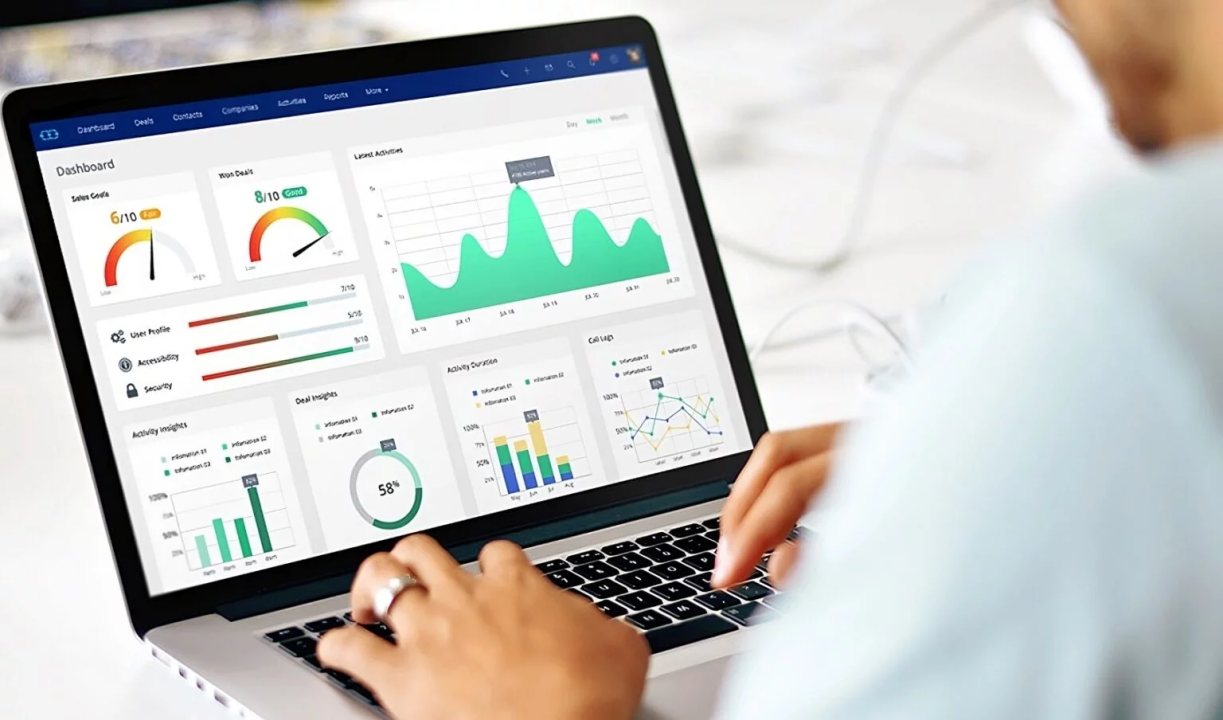In the fast-paced world of real estate, staying organized and efficient is key to success.
Imagine having a tool that can help you manage your contacts, streamline your processes, and ultimately scale your business.
Enter Customer Relationship Management (CRM) software—a game changer for real estate agents looking to take their business to the next level.
What is CRM Software?

(Photo from Rolustech)
CRM software is designed to manage and analyze customer interactions and data throughout the customer lifecycle. The goal is to improve relationships with clients, assist in customer retention, and drive sales growth. For real estate agents, a CRM system can be the difference between a chaotic workload and a well-oiled machine.
Why Real Estate Agents Need CRM Software

(Photo from LinkedIn Pulse)
-
Centralized Database: Remember the days of sticky notes, scattered spreadsheets, and missed follow-ups? With CRM software, all your client information is centralized and easily accessible. Whether you're at your desk or on the go, you can access contact details, transaction histories, and communication records in one place.
-
Improved Communication: CRM tools often include automated communication features. This means you can schedule follow-up emails, send birthday greetings, or notify clients of new listings without lifting a finger. Automation ensures that no lead falls through the cracks and that every client feels valued.
-
Lead Management: One of the most significant advantages of using CRM software is the ability to manage leads effectively. From initial contact to closing the deal, a CRM tracks every interaction. You can categorize leads based on their readiness to buy, prioritize hot leads, and nurture colder ones until they're ready to make a move.
-
Enhanced Marketing: Modern CRMs come with marketing automation capabilities. You can create targeted email campaigns, segment your audience, and track the success of your marketing efforts. This data-driven approach allows you to refine your strategies and focus on what works best.
-
Streamlined Transactions: Keeping track of numerous transactions can be daunting. CRM software helps you manage all aspects of a sale—from initial contact and property viewings to negotiations and closing documents. This streamlining not only saves time but also reduces the likelihood of errors.
-
Analytics and Reporting: Knowledge is power. CRM systems offer robust analytics and reporting features that provide insights into your business performance. You can track metrics such as lead conversion rates, sales cycles, and client satisfaction levels. This data helps you identify areas for improvement and make informed decisions.
Choosing the Right CRM for Your Real Estate Business

(Photo from Pexels)
Selecting the right CRM software is crucial. Here are some tips to help you make the best choice:
-
Real Estate-Specific Features: While there are many generic CRM solutions available, opting for one tailored to real estate can offer significant advantages. Look for features like property management, MLS integration, and automated marketing specific to real estate.
-
Ease of Use: A CRM is only effective if you and your team actually use it. Choose a platform with an intuitive interface and good customer support. A steep learning curve can deter adoption and reduce the tool’s effectiveness.
-
Scalability: As your business grows, your CRM should be able to grow with you. Ensure that the software can handle an increasing number of contacts, transactions, and users without compromising performance.
-
Integration Capabilities: Your CRM should integrate seamlessly with other tools you use, such as email platforms, social media, and document management systems. This integration ensures a smooth workflow and reduces the need for manual data entry.
-
Mobile Accessibility: Real estate is a mobile profession. Having a CRM that works well on smartphones and tablets means you can manage your business from anywhere—whether you're showing a property or attending a networking event.
Final Thoughts

(Photo from Business News Daily)
Using CRM software is not just about managing your contacts; it's about transforming the way you do business. By automating routine tasks, improving communication, and providing valuable insights, a CRM can help you scale your real estate business efficiently and effectively.
Investing in the right CRM system is an investment in your future success. With the right tool at your disposal, you'll be better equipped to handle more clients, close more deals, and ultimately, grow your business. So, take the plunge, explore your options, and find the CRM that will help you unlock your full potential. Your future self will thank you!